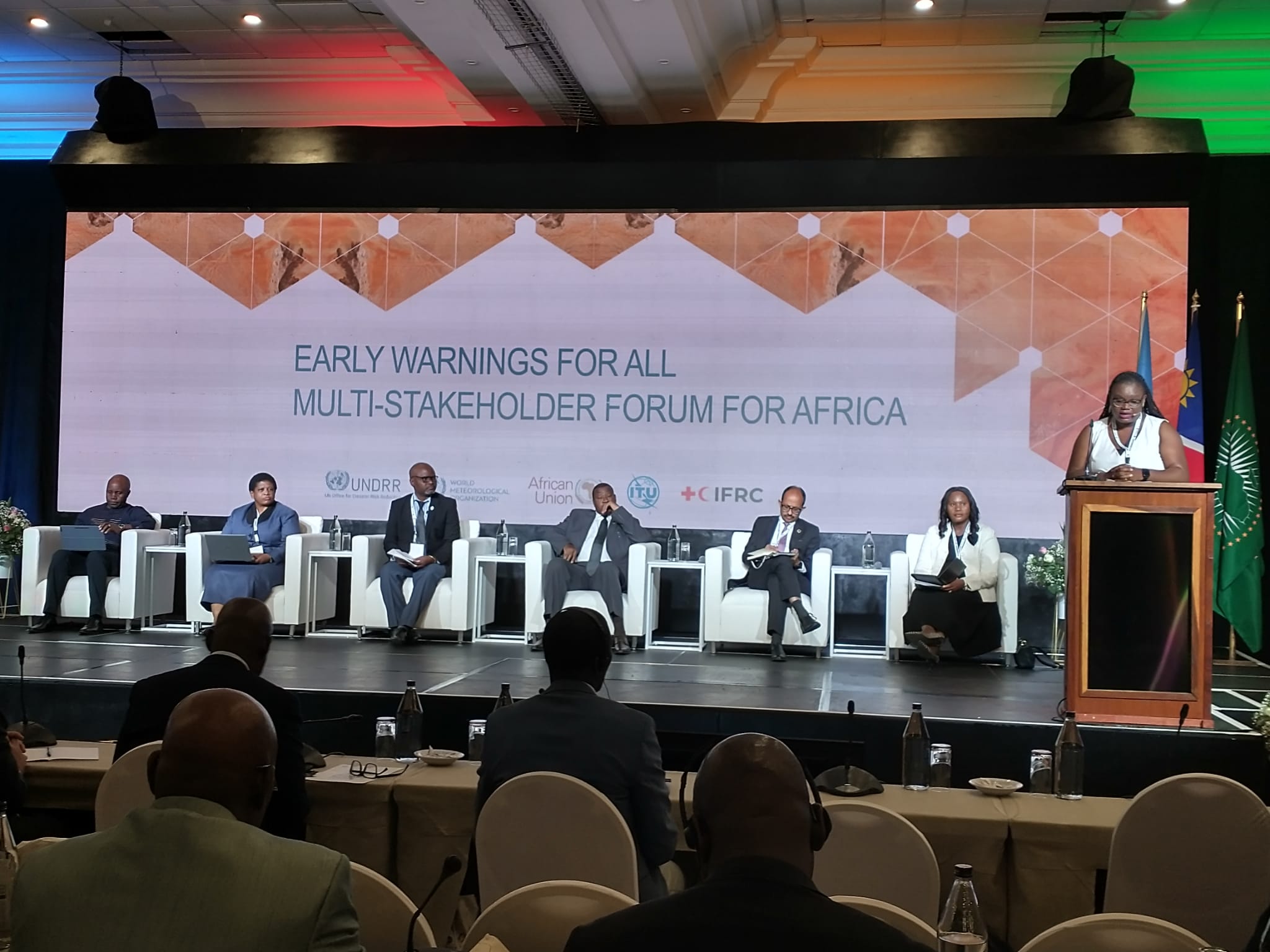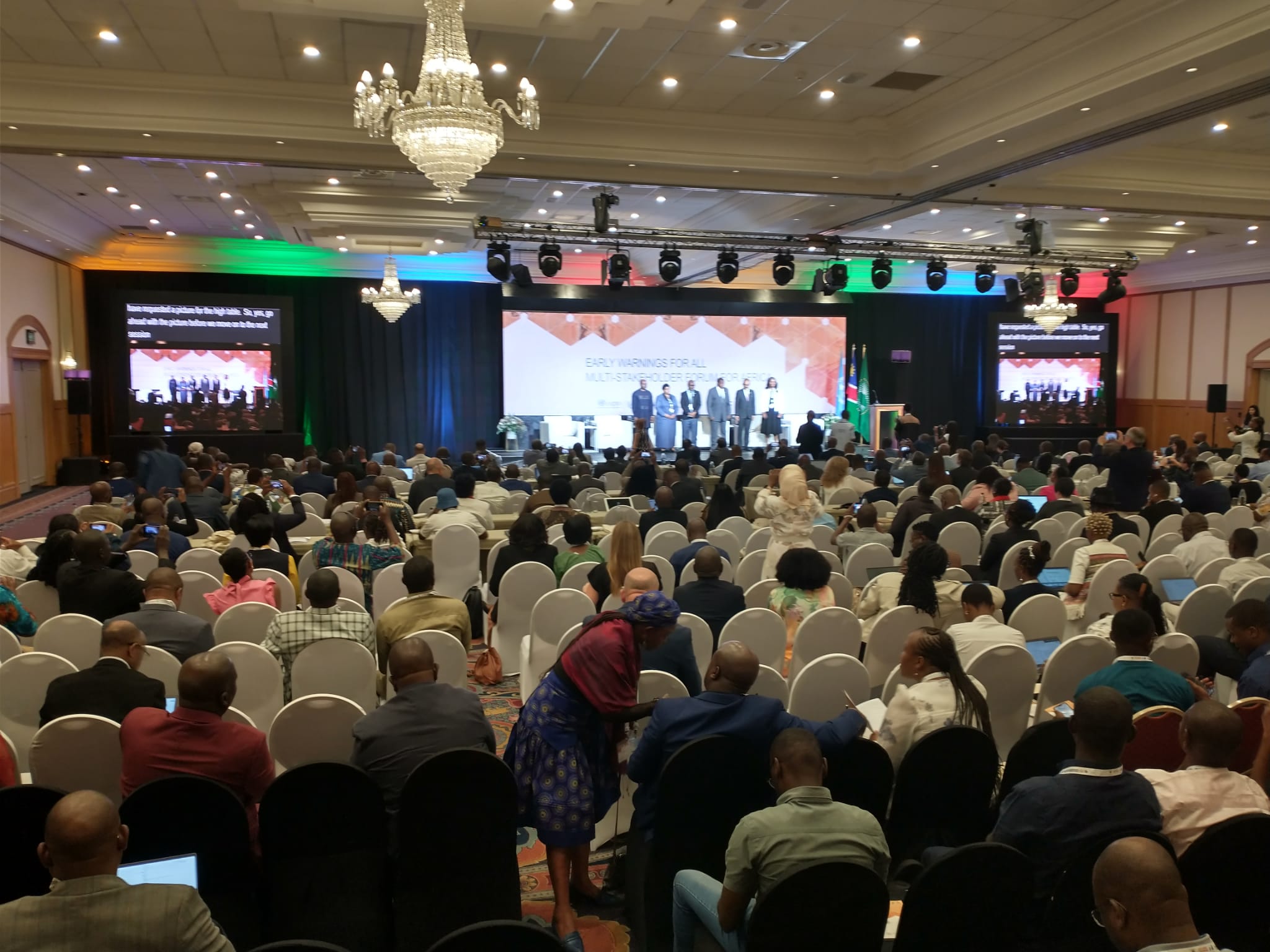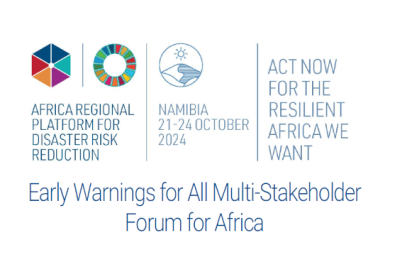From 20th to 24th October, the United Nations Office for Disaster Risk Reduction (UNDRR), the African Union Commission (AUC), the Southern African Development Community (SADC), and the Republic of Namibia are organizing the 9th Session of the Africa Regional Platform for Disaster Risk Reduction in Windhoek, Namibia. The session kicks off with several events including the Early Warnings for All Multi-Stakeholder Forum for Africa, which brings together a wide range of stakeholders from many African countries, as well as other regional and international organisations. UN-SPIDER and ZFL staff are participating in this forum and in this session of the African Platform for Disaster Risk Reduction.
The Multi-Stakeholder Forum was inaugurated by high-ranking authorities from UNDRR, AUC, SADC, the Regional Office for Africa for the World Meteorological Organization (RAF/WMO), and the Government of Namibia. Hon. Mr. John Mutorwa, Deputy Prime Minister of Namibia and Minister of Works and Transport, noted that disasters do not discriminate between countries around the world and that Namibia often experiences floods and droughts that are exacerbated by climate change. He commented that there is a need to accelerate efforts to improve early warning systems in Namibia and Africa. Ms. Helen Likando, Director of the Directorate for Disaster Risk Management of Namibia, stressed the need for early warning efforts to improve the resilience of African countries to natural hazards.

Mr. Kamal Kishore, Special Representative of the United Nations Secretary General for Disaster Risk Reduction, reminded participants of the need to consider the four elements of effective, people-centred early warning systems when addressing this topic. Mr. Harsen Nyambe of the AUC noted that the AUC had launched the African Multi-Hazard and Early Warning and Action System (AMHEWAS) in 2022 and had recently established a situation room at its headquarters to keep abreast of hazards affecting Africa. Ms Agnes Kijazi, Head of the RAF/WMO, noted the need to have access to accurate data to make accurate predictions of events that could trigger disasters, and to ensure that there is an authoritative voice to issue warnings in countries. Mr Anderson Banda of SADC reiterated the need to strengthen disaster preparedness and empower authorities and communities to meet the challenges posed by these hazards.

The Multi-Stakeholder Forum featured several panels where experts from a wide range of organisations and institutions shared their experiences and commented on issues that need to be considered in early warning efforts in Africa.

